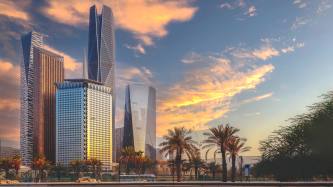Much like Lebanon's iconic cedar trees, the country's economy embodies the quality of resilience. Having experienced devastation inflicted by war in 2006, as well as phases of disturbances on the domestic political scene until May 2008, the country has recorded consistent levels of growth since 2007. The economy is predicted to expand again this year and, according to recent World Bank estimates, real gross domestic product (GDP) growth is expected to match 2009's rate of 7%. Nominal GDP stood at approximately $32.7bn at the end of 2009, a dramatic increase from 2005's figure of $21.9bn.
Part of the reason for Lebanon's economic strength lies in its diversity. No one sector dominates the market. According to official government figures for 2008, the services sector was the best performer at 33.5% of GDP, followed by trade at 26.6%. Construction and industry are also notable performers at 13% and 8.8%, respectively.
An Outside Hand
Lebanon's economy has also been boosted by substantial external factors. Remittance inflows from Lebanon's sizeable diaspora have grown in recent years, from $4.98bn in 2005 to $5.5bn in 2008, and are set to continue this trend in 2010. Tourism numbers have also picked up. Last year represented a record year with more than 2 million people visiting the country, and the picture for 2010 already looks bright - according to Lebanon's Ministry of Tourism, the number of tourists visiting Lebanon in the first two months of the year increased by 34.8% to 234,801, compared to 174,210 for the corresponding period last year.
The possibility that a slow global recovery might hinder Lebanon's economic prospects has been played down by experts on the country. "Lebanon's economic growth pillars - inflows of bank deposits, real estate investment and foreign as well as diaspora tourism - will likely offset the potential impact of a slow global recovery on Lebanon's economic prospects in 2010. There is no sign that the regional and international sources of these growth pillars will let up this year and, given the small size of the Lebanese economy, even marginal increases in these sources of growth can end up adding a significant proportion to GDP growth for the year," says Florence Eid, founder and CEO of Arabia Monitor, a London-based research and advisory firm specialising in the Middle East and north Africa region.
Potential Hazards
A cause of particular concern is the Lebanese government's finances. With the budget deficit at between 9% to 10% of GDP and the public debt estimated at 147% of GDP by the end of last year, this concern cannot be understated - but other matters are also important. "There are a number of significant challenges facing the Lebanese economy in the short to medium term. These challenges include the continued increase of the fiscal deficit without the implementation of reforms; the high cost of doing business in Lebanon, particularly as a result of exorbitant electricity and telecoms costs; and improving the business climate in the country so as to attract more investment," says Nassib Ghobril, head of economic research and analysis at Byblos Bank.
However, there is confidence in Lebanon's fiscal position. Fitch Ratings recently upgraded its ratings from B- to B, a reflection of the government's attempts to reduce public debt, the favourable prospects for growth following improvements in the country's political and security situation, and the macroeconomic stability of the region.
Freddie Baz, CFO and strategy director of Bank Audi, believes the government is able to address its debt concerns. "Lebanese public debt is a cashflow issue, not an equity issue; the government has ownership of a number of assets such as public utilities, telecoms, the airport and prime lands in greater Beirut. If you put a very conservative value on those state assets, the total will exceed total debt," he says.
An inevitable concern for the economy and the country at large is the political and security situation. However, the Doha Agreement of May 2008, which brokered peace between Lebanon's rival political factions, has managed to bring calm to the domestic political scene, paving the way for continued economic progress.

Lebanon - Facts and figures











